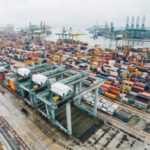“Trade remedies” are frequently used measures in international trade, and a frequent cause of disputes. We provide a brief overview of what they are and the issues they raise.
“Trade remedies” is a term usually applied to measures that governments can implement in specific cases of perceived abuses in international trade in goods. These measures are provided for in the specific articles of GATT 1994 (the basic document of the World Trade Organisation – WTO), with further disciplines developed through three separate agreements of the WTO, namely the Agreements on Implementation of Article VI of the GATT 1994 (commonly known as the Anti-dumping Agreement); the Agreement on Subsidies and Countervailing Measures; and the Agreement on Safeguards.
Two of these deal with perceived distortions to trade, namely dumping by exporting firms and export subsidisation by governments. A third, the agreement on safeguards, deals with temporary surges in imports that may not reflect distortionary practices but that nevertheless are deemed to cause harm to domestic industries.
The economics of trade remedies and their associated agreements is deeply contested. In the case of anti-dumping, the provisions may allow action to be taken against normal commercial behaviour that involves differential pricing practices across markets, or which may indeed derive from genuine comparative advantage of producers in exporting countries. In any event, the provisions of the agreement do not require authorities to take into account the interests of consumers or users of the imported product, with the consequence that the imposition of duties may have detrimental impacts on the importing country and favour narrow lobbying interests.
Safeguard actions are much rarer than anti-dumping measures, mainly because the latter can target specific exporters into the market, whereas the former need to be applied to a category or categories of products across-the-board. But similar criticisms apply: while increased imports are undoubtedly a challenge to competing firms, increased import competition is likely to have wider benefits in terms of consumer choice and stimulating productive efficiencies. Countervailing measures in principle are more justifiable than the others, as they seek to counter a specific policy distortion (subsidies), but are also prone to political manipulation.
For these reasons, trade remedies are generally considered to be measures that respond to political economy imperatives: a form of “legalised backsliding” that allows members to take temporary action to alleviate pressures from protectionist domestic constituencies, who would otherwise channel their efforts into blocking liberalisation efforts more generally.
But in developed countries any such political economy considerations should be set against the costs of granting special dispensations to certain producers and sectors, while delaying economic transformation that is inevitable in the longer run, and will be more painful the longer it is put off.
As things stand, the UK needs to rely on the EU to handle and implement trade remedies, since these fall under the EU’s competence in external trade. The EU’s own approach to remedies has recently taken a more protectionist turn.
In a post-Brexit world, however, the UK has the chance to build its own approach to trade remedies within the framework of WTO rules. If we accept that the demand for trade remedies reflects political economy factors, then the key challenge will be to develop rules that provide legitimate relief for domestic producers found to be suffering injury, but which at the same time help to discipline these pressures and mitigate any damage they cause in the market. Building into trade remedy investigations an assessment of the wider economic effects, including consumer effects, of applying remedial measures could be a good start.
As well as defining its own approach, the UK will need to develop its capacity to challenge potential abuses that adversely affect it. In a world of interlinked supply chains, these effects may come through a number of routes. The decision taken by the US in 2017 (subject to final confirmation in February 2018) to levy duties on Bombardier is on the face of it one pitting the US against Canada, but one which also has profound ramifications for the UK given its integration into Bombardier’s value chain.
In sum, the question of trade remedies is a complex one that the UK will need to grapple with. It involves balancing acute political pressure from defined interests with the public interest more broadly. And it will require significant investments in institutional capacity.




